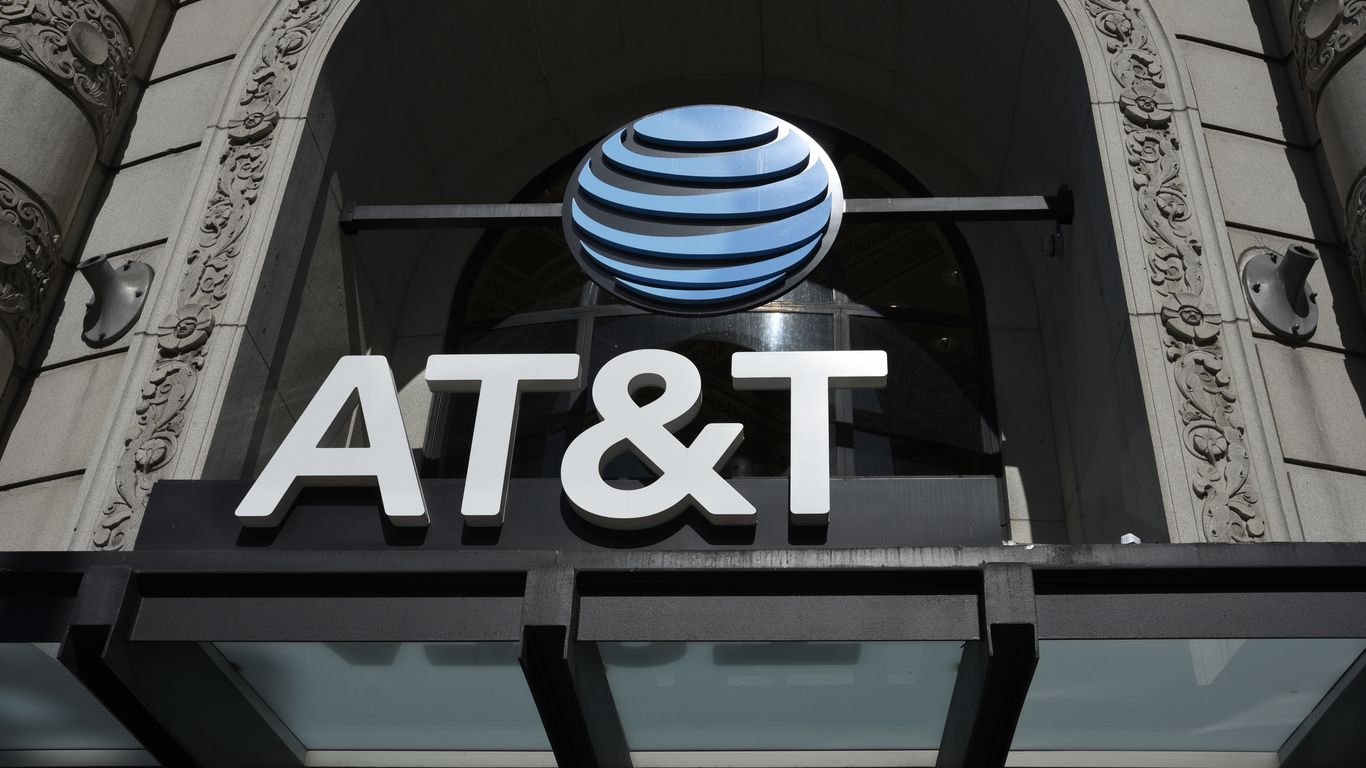
Nineteen of the biggest companies in the U.S. paid very little in federal income tax last year, according to a new report provided exclusively to Axios by the progressive think tank Center for American Progress (CAP). Four companies paid less than zero in federal income tax, including AT&T, Charter Communications, American International Group and Dow Inc.
Why it matters: Corporate profits surged to record highs last year, thanks in part to copious amounts of government spending. The idea that companies that earned billions aren't paying any federal tax is sure to fuel simmering criticisms from Democratic lawmakers.
- "These are huge profitable corporations, and they hardly pay any taxes," said Seth Hanlon, a senior fellow at CAP who coauthored the report. "It's a glaring sign that something is wrong with the tax system."
The backstory: Companies have been paying lower taxes since the 2017 passage of President Trump’s signature Tax Cuts and Jobs Act, which cut the official rate to 21% from 35%. The 19 companies on CAP’s list all paid an effective rate below 10% — or less than half the official rate.
- Before the law passed, many companies were already paying about half the official tax rate — but it was higher number, around 17% on average, said Matthew Gardner, a senior fellow at the Institute on Taxation and Economic Policy (ITEP), which has been scrutinizing these numbers for decades.
State of play: Companies don't have to publicly release their income tax filings. This report — and others like it over the years — relies on public companies' annual 10k fillings, where they estimate a “federal income tax expense,” or the money they will pay to Uncle Sam.
- For this analysis, CAP focused on the Fortune 100. Last year, ITEP found that 55 companies on the Fortune 500 list paid no taxes.
- The analysis doesn't include deferred taxes — they haven't actually been paid yet. And it doesn't include foreign taxes.
- Some of the companies on the list argue this methodology distorts the findings.
Companies reduce their tax bill, just like many of us, by taking deductions. Some popular ones, according to Gardner:
- Tax breaks for capital investments: The 2017 tax law increased the amount a company can write off when it spends money on corporate infrastructure, or the tangible stuff it needs to conduct its business.
- Research and development: This is a big one in the tech sector, Gardner says. Along with capital investments, this is the type of spending that companies would do regardless of tax implications, in order to survive.
- Stock options: Companies can write off the market value of stock options that employees exercise.
The intrigue: Companies are supposed to disclose significant tax breaks in their regulatory filings — but they don't always do it and there's not a lot of enforcement around disclosure, Gardner adds.
- "There are plenty of companies that I've run across in the past where you look at their effective tax rate, and you just cannot tell why," he said.
What they're saying: Axios reached out to all 19 companies on the list, and most of those who responded pointed out they pay what they're supposed to pay.
- "Ford pays all the taxes it owes in every jurisdiction in which it operates — in the U.S., at the state and local level, and abroad," said Ian Thibodeau, a spokesman for Ford.
- "GM follows all applicable tax codes," said a spokesman.
- "We comply with tax laws worldwide and pay our tax obligations in the U.S. and abroad," said John Scruggs, a spokesman for FedEx.
- A Metlife spokesperson said the company's low tax rate was driven by tax credits on its investments in government-sponsored programs around affordable housing and clean energy that benefit communities.
- Bank of America spokesman William Halldin said the bank paid more than $6 billion in taxes last year, pointing to a filing that included payroll taxes and property taxes — "making the company one of the larger taxpayers in the country." (According to CAP's report, BofA paid $1.1 billion in federal income taxes, on $31 billion in earnings.)
- ExxonMobil said its effective income tax rate for 2021 was 31% (a number that includes deferred taxes).
- A Chevron spokesperson referred Axios to this document laying out its approach to taxation.
Of the four who paid no taxes, only Charter commented substantively:
- “Charter’s investments in technology and infrastructure — which totaled more than $40 billion from 2017 to 2021 alone — have resulted in a decreased tax burden, as well as taxes being deferred for future payment," a spokesperson emailed.
- "Charter pays significant income taxes in most state and local jurisdictions and will be a meaningful federal cash tax payer this year.”
April 26, 2022 at 05:29PM
https://www.axios.com/these-companies-paid-little-to-no-taxes-last-year-185d94c0-6f77-47f7-bd7f-ff5e2a061c8d.html
These companies paid little to no federal taxes last year - Axios
https://news.google.com/search?q=little&hl=en-US&gl=US&ceid=US:en

No comments:
Post a Comment